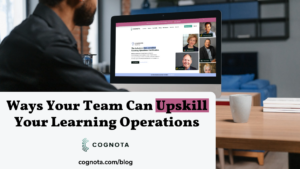When you need to include a subject matter expert to help you with your training course, you have raised the stakes for the project. Why? Because the inclusion of a SME means that your course is carrying precious cargo, which is often the highly valued or irreplaceable knowledge of a subject matter expert.
If your course depends on an expert, include them in the learning design process early and often whenever possible. A true expert will have a birds-eye view of the objectives for your course even though you may need to spend time sorting out details as you tiptoe through the weeds with them during actual design and development. To make sure you use your expert to his or her full potential, my first blog in this space will provide an overview of all the ways in which an expert can help you during every phase of the ADDIE process. Over the next few blogs, we’ll drill down further into the ways you can work with your experts to increase their value to your learners.
Project Kickoff
Before you start, make sure the project kickoff includes identification of the experts you will need to complete the course. Check to make sure the identified experts have the availability to be part of the process before you begin. This little detail alone may avert delays later. Often the most obvious person to serve as your expert is not the most available person for any number of reasons. Get your experts lined up before you begin. Now that you have your expert on board, let’s look at their role in the learning design process as adapted from the book Working with SMEs: A Guide to Gathering and Organizing Content from Subject Matter Experts.
Your Expert and ADDIE
Analysis – During the Analysis phase, you are defining your course goals and learning objectives, determining the material to be included, where and how the material will be delivered, and the appropriate students for the course. Your expert will have valuable input into framing your course goals and learning objectives, even though you will want to gut-check their input with leadership that has the long-term strategic view of the course goals in their sightline.
The Analysis phase is a great time to include the expert in your plan for the next phases of the project to ensure that you have them ready to work with your team through to the successful completion of your course.
Design – As you design your course, your expert is your best friend. In fact, many instructional designers and trainers believe this is the only stage where you should have considerable contact with your expert. It is my purpose here to destroy that myth. During the Design phase, the expert is giving you the appropriate content as well as helping you to design assessments and exercises that reinforce the information. However, their perspective, input, and validation of your work improve your product at all stages. So, yes, while you may have the most contact with an expert during this Design phase, their involvement here is just one of their important roles.
During the Design phase, you will have the most frequent contact with your SME. You may be asking them for any or all of the following:
- Existing data and resources in their possession including but not limited to presentations, professional and peer-reviewed articles they’ve written, books, speeches, notes, diagrams, graphs, charts, spreadsheets and so on
- Interview time, including making sure they schedule appropriately to work with you to complete the course on time and within budget
- Writing their previously uncaptured knowledge into a document
- Audio and video recordings explaining their area of expertise
- Immediate review of ongoing knowledge collection
- Sharing exercises or practice materials they have successfully used, or the time and input to help you develop appropriate exercise and practice materials
- Determining the types of assessments, tests and knowledge checks that best support the content or validating the ones that you create
Development – The project mostly falls into the lap of the instructional designer at the Development phase. As the ID begins to build the program, he or she may have questions about which material to include or how to include it. It is good to have the expert, if not on speed dial, then at least able to be reached on a regular schedule. The expert is a great resource during the Development phase to:
- Clarify content
- Provide direction on what to include or exclude
- Referee conflicting information
- Check wording and exact phrasing (sometimes a person unfamiliar with the intimate details of an area of expertise may inadvertently misuse language)
- Provide additional information or fill in gaps that become obvious during development
- Continue to provide new or updated information in the case of evolving content
- Link the instructional designer to additional people and resources to provide the above
Implementation – This is a great time for your expert to enjoy the fruits of their labor by being part of the course rollout. Whether you have developed a live course or an online course, give credit to your expert if appropriate, get the expert’s feedback on the finished product after it has been delivered, and include them in the feedback you get from learners – both the positive and the suggestions for improvement.
Depending on the expert’s capacity, interest and background, the expert may be the best person to present the live material during the implementation phase. An expert’s involvement in live classroom training is the subject of entire books, but for our purposes here, it should be noted that often this may become the time your SME becomes your greatest asset. A highly enthusiastic and knowledgeable expert can be the key to a wildly successful live rollout. If you’ve got one of those, take advantage of the asset. If you don’t have a SME who is experienced in presenting, they can learn presentation skills and may often grow to love being the resident expert trainer.
Evaluation – Your SME has been dedicated to helping you create a course based on their area of expertise. It is a good idea to include your SME in the course Evaluation phase, as well. As part of your course design, you most likely have included evaluation of the material, perhaps using Kirkpatrick’s 4 Levels or some other validated evaluation process. As you get feedback on your course, make sure your expert knows what is working and where the course is not hitting the target. The expert can remain a valuable asset as you adjust the course in response to evaluations.
Here are a few ways your expert can participate in the types of evaluation:
- Learner satisfaction – Let your expert know if the learners enjoyed the content. This is particularly important if the SME also participated as a live classroom trainer. If they were rated as a trainer, share their scores with them.
- Learner retention – Your expert may be best suited to determine if the learner gained the knowledge that the course set out to teach by reviewing the tests and assessments.
- Learner application on the job – Your expert may be one of the people, in collaboration with their direct supervisors, who can assess if learner performance reflects correct application of the material on the job.
- Business goals – Depending on the view of the expert regarding the long-term strategic objectives of the business, the expert may be able to help assess if learner performance is supporting the business. If performance is not advancing business goals, some experts have strategic insight into how to adjust the content to support the business. In many cases, however, experts are focused on one particular area of the business and may not see the bigger picture. But it is a good idea to include your expert in this information and get their feedback anyway.
Your Expert as a Full-Service Resource
This overview of the role of the expert in the learning design process is intended to give you a glimpse into the many ways that your expert can be a fully involved resource during all phases of the ADDIE process.
In two weeks, we’ll drill down further into the SME’s role specifically in the Design phase because your expert’s knowledge is most often associated with this phase of the process. Until then, appreciate your SME and treat them well. Their knowledge is the lifeblood of your organization.





